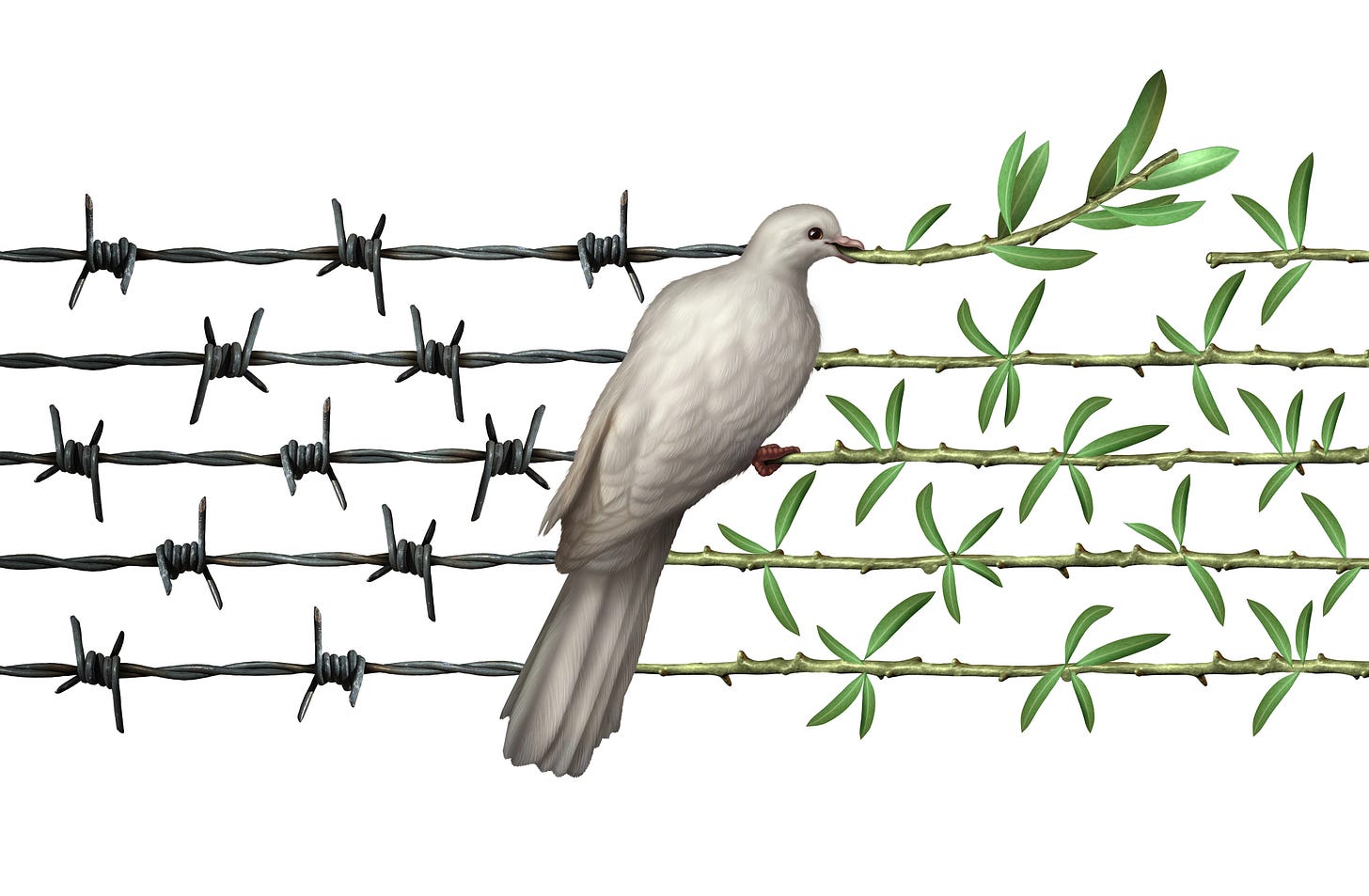Veganism, a philosophy centered on compassion and the avoidance of cruelty to animals, is often perceived as a personal lifestyle choice. Yet, the implications of this ethical stance reverberate far beyond individual dietary preferences. Could the principles underlying veganism—empathy, non-violence, and sustainability—hold the potential to transform global relations and contribute to a more peaceful world order?
‘‘Veganism's principles of compassion and non-violence can influence global peace by reducing resource conflicts, promoting economic stability, improving public health, and fostering a culture of empathy. Embracing veganism encourages sustainable practices and ethical awareness, paving the way for a more harmonious and peaceful world.’’
By examining the interconnectedness of food systems, resource allocation, and human behavior, we can begin to unravel the complex ways in which veganism might serve as a catalyst for positive change on a global scale.
A Plant-Based Planet, A Peaceful World
At the heart of veganism lies a commitment to reducing harm to animals. Yet, the ripple effects of this choice have the potential to transform our planet and its inhabitants.
Resource Conflicts and Environmental Sustainability
Competition for resources is a common catalyst for conflict. Animal agriculture is a major consumer of land, water, and grains. Shifting to plant-based diets could significantly alleviate this strain, reducing tensions over scarce resources. Additionally, veganism promotes sustainable farming practices that mitigate climate change, a growing driver of instability.
A Culture of Compassion
Veganism's emphasis on empathy and non-violence extends beyond animals. By cultivating a mindset that values all life, individuals can develop a stronger capacity for compassion and understanding towards fellow humans. This shift in perspective can foster a culture of peace and encourage diplomatic solutions to conflicts.
Economic Equality and Global Stability
The global economy is heavily reliant on animal agriculture, a system often characterized by inequality and resource depletion. Transitioning to plant-based economies could lead to a more equitable distribution of wealth and reduce economic disparities that fuel conflict. Moreover, decreasing dependence on animal products can stabilize global trade relationships.
Healthier Populations, Stronger Nations
Plant-based diets are associated with numerous health benefits, including reduced risk of chronic diseases. By investing in preventive healthcare, nations can free up resources for other priorities, such as conflict resolution and social development. Additionally, reducing the demand for animal products can mitigate the risk of future pandemics, which can destabilize societies and exacerbate geopolitical tensions.
A New Global Ethic
Veganism challenges us to reconsider our relationship with the planet and its inhabitants. By embracing a worldview that values all life, we can foster a global culture of mutual respect and understanding. Education and awareness about the interconnectedness of all beings are crucial steps towards creating a more compassionate and peaceful world.
Leading by Example
Countries that champion veganism and sustainable living can exert significant soft power. By demonstrating a commitment to ethical and environmentally responsible practices, they can inspire others to follow suit. International cooperation on plant-based food systems can build bridges between nations and create a united front against global challenges.
Conclusion:
Veganism offers a blueprint for a more just and sustainable world. By addressing the root causes of conflict, such as resource scarcity, inequality, and environmental degradation, this philosophy has the potential to create a more peaceful future for all. While individual choices matter, collective action is essential to realize this vision.
Sources:
Environmental impact of industrial livestock production: https://www.sciencedirect.com/science/article/pii/S004896971832871X
Health Risks Associated with Meat Consumption: https://www.pcrm.org/health/diet/whats-wrong-with-meat/health-risks-associated-with-meat-consumption
Plant-based diets could revolutionize the way we eat and cut emissions: https://www.theguardian.com/environment/2021/jul/15/plant-based-diets-revolution-cut-emissions-climate-crisis
Get my new booklet ‘‘25 Vegan Myths Debunked!’’
This concise guide is invaluable for anyone curious about veganism, offering evidence-based insights and practical guidance to navigate vegan living confidently. All proceeds benefit the promotion of animal rights worldwide!Visit Our Amazon Store!
Notice: As an Amazon Associate, we earn a commission from qualifying purchases that help promote animal rights worldwide!General Resources
Books:
Dominion: The Power of Animals in Nature and in Our Imagination by Matthew Scully
Animal Liberation by Peter Singer
Eating Animals by Jonathan Safran Foer
A Billion Hungry Mouths: Feeding the World Without Consuming the Planet by Colin Tudge
Websites and organizations:
Documentaries:
Articles:
"The Case for Animal Rights" by Tom Regan
‘‘Why We Love Dogs, Eat Pigs, and Wear Cows: An Introduction to Carnism’’ by Melanie Joy
‘‘Animal Rights: The Abolitionist Approach’’ by Gary L. Francione
‘‘Fellow Creatures: Our Obligations to the Other Animals’’ by Christine Korsgaard
Seeds of Compassion: Finding Jesus Christ in a Vegan World by Michael Corthell
Receive a single informative article daily at 12:01 AM by email. Explore my homepage with exciting vegan and plant-based news content and delightful and delicious recipes for additional updates. Stay connected to the vegan world and all it has to offer.
Visit The Vegan Project Global our Facebook page for more vegan outreach and education.
The information on this vegan/plant-based blog is for general informational purposes only. It is not intended as legal, medical, or professional advice. Readers should consult with appropriate professionals for specific advice tailored to their situation. The blog owner is not responsible for any reliance on the information herein.





